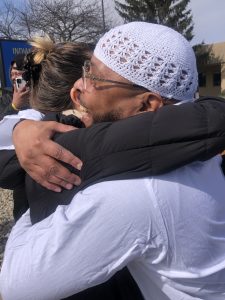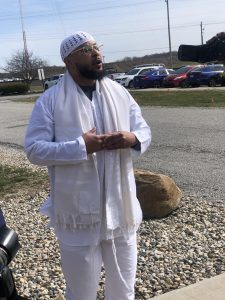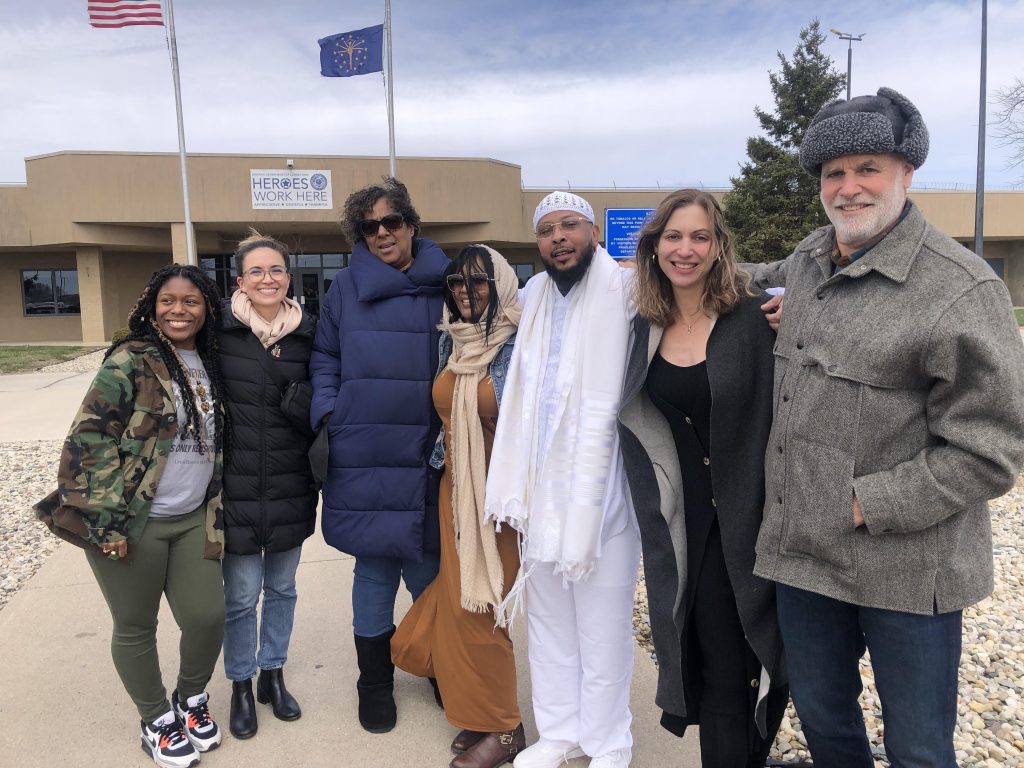Subscriber Benefit
As a subscriber you can listen to articles at work, in the car, or while you work out. Subscribe NowA Marion Superior Court judge vacated the first-degree murder conviction of Leon Benson on Wednesday, after an investigation revealed evidence buried in the police file by the lead detective pointed to another man as the actual shooter.
The investigation that led to Benson’s exoneration after nearly 25 years in prison was led by the University of San Francisco School of Law Racial Justice Clinic and the Conviction Integrity Unit of the Marion County Prosecutor’s Office.
“All too often, prosecutors wield their power to cement wrongful convictions and entomb the innocent,” Lara Bazelon, who was part of Benson’s defense team, said in a statement from the Exoneration Project. “We are gratified and relieved that the Marion County Prosecutor’s Office appreciates that nothing is more important than rectifying a past wrong. Leon Benson and his family have been victimized by the system for 25 years. Today, with Leon’s exoneration for a brutal murder he did not commit, they finally got justice.”

Benson’s conviction stemmed from a shooting on Aug. 8, 1998. Kasey Schoen, who was white, was shot five times in his car in Indianapolis at around 3:30 a.m.
A white newspaper carrier who was about 150 feet away identified Benson as the shooter, and so did a man who, according to the Exoneration Project, had a history of mental illness and held a grudge against Benson.
No murder weapon was recovered, and no fingerprints, DNA or other forensic evidence linked Benson to the crime. Other witnesses placed Benson inside of a building across the street.
According to the Exoneration Project, multiple leads pointed to another suspect, Joseph Webster, but Indianapolis police zeroed in on Benson after Webster, who was facing other criminal charges at the time, declined to be interviewed by police.
A witness who knew Benson and Webster told detectives Webster was the shooter, but Benson’s lawyer failed to call Fulton at trial or present any meaningful defense.

The lead detective, Alan Jones, excised almost all of the information pointing to Webster as the shooter from the file he provided to the Marion County prosecutor, including a tip from a confidential informant stating that another eyewitness saw Webster “shot [c] white guy in the head” and listing the names of people that Webster had bragged to about it, according to the Exoneration Project.
Benson was tried twice. The first ended in a mistrial after six of the 12 jurors voted not guilty. He was re-tried and convicted in 1999 and sentenced to 61 years in prison.
The investigation by the university and Conviction Integrity Unit “revealed that this evidence and other buried evidence pointed convincingly to Webster” and that one of the witnesses wasn’t in a location where they could have seen the shooting, according to the Exoneration Project.
Jones, the detective, admitted in May 2022 in a sworn declaration that he didn’t turn over some evidence to prosecutors, including a note from another detective about the confidential informant and a note written by Jones about a witness who identified someone else as the shooter.
In a 2022 motion to vacate judgment, Benson’s lawyers wrote that the suppressed evidence “points compellingly to Mr. Benson’s innocence.”
Benson’s defense team was led by University of San Francisco professors Bazelon and Charlie Nelson Keever, along with their law students.
“Other witnesses came forward who also implicated Webster, but didn’t tell the full truth at the time of trial because he bribed, threatened, or intimidated them,” the statement reads.
In an order granting the amended petition for postconviction relief, Marion Superior Court Judge Shatrese Flowers wrote Brady violations precluded Benson from pursuing a viable defense.
“The cumulative effect of withholding the above-referenced evidence resulted in a violation of Leon Benson’s due process rights afforded to him under the 5th and 14th Amendments to the United States Constitution and Article 1 Sections 12 & 13 of the Indiana Constitution,” the order reads.
The order says the error warrants a new trial but that the state has informed the court it no longer has confidence in the integrity of the case against Benson and will not seek re-trial.

This is the first exoneration under the Conviction Integrity Unit, which was established in 2021.
In a statement, the Marion County Prosecutor’s Office said it was a “long and difficult process” but that “justice requires that we set aside this conviction.”
“In order to garner the community’s trust in the criminal justice system, it is critical that the integrity of the process is maintained at every point, from the investigation through post-conviction efforts,” the office said.
Please enable JavaScript to view this content.

